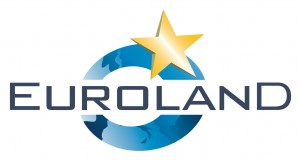{This fifth GlobalEurope 2020 anticipation seminar was organised on July 9th 2004 by Europe 2020 in cooperation with the Portuguese Ministry of Foreign Affairs, with the support and participation of the State Secretary to European affairs Mr Carlos Costa Neves; it took place at the beautiful Cultural Centre of Belem on the Tagus river and dealt with the EU’s future policy in matters of relations with Latin America. The size (45 participants) as well as the quality of the audience coming from 16 different States demonstrated the importance of the theme tackled at a time when Latin America engages more than ever towards regional integration and when the EU seeks to turn it into a strategic partner on a global level. This session was marked by a great convergence of opinion and analysis among the various European participants and speakers. Less than 2 sessions before the end of the first GlobalEurope 2020 series, the confirmation of this trend towards a common opinion leaves room for considerable optimism with respect to the development and realisation of a common external policy in the years to come.}
{{Geographical remoteness and cultural proximity}}: from the Spanish and Portuguese conquests to the creation of independent republics, from the massive migratory flows from Europe during the colonial conquest and the development of Latin America to Europe’s tradition as asylum for Latin-American political refugees, from the shameful partnership in trading slaves and in massacring native populations to the common elaboration of new collaborations between the EU and Mercosur,… Europeans and Latin-Americans share over 5 centuries of common history despite a great geographical distance. Mr Patricio Aylwin, former President of Chile, reminded us during the introduction to the workday: for Latin-American elites, liberty, democracy, science, education and industrialisation all came from Europe.
Nevertheless, in the next 20 years, this Euro-Latin American “intimacy” could grow on the basis of a common dream of regional integration, and of a partnership extending beyond mere trade and economic issues to include cultural, political and social dimensions. However to implement such a partnership, two important factors likely to transform Latin America into a very different continent by 2020, should not be underestimated:
. on the one hand, the growing power of native populations should result in a redefinition of the identity of Latin-American countries, namely in the Andes and in Central America
. on the other hand, the complex evolution of the United-States’ influence will certainly remain important in Latin America and could oppose « Europhile » trends, but will take place in a rather new context due to the fact that the US will be much more intermingled with Latin America as « Latinos » will be the majority in various Southern states of the US.
All these developments will largely depend on how Latin-American elites will address the immense social question, prerequisite for political stability and economic development in the whole of South and Central America. Currently, according to a statement unanimously formulated by the seminar’s participants, these very elites (political, intellectual and social) seem but little able to handle such an evolution, being either stuck in rhetoric due to lack of operational instruments (for instance to foster regional integration processes) and of political legitimacy (for instance, to transform the existing economic and social system bearing the world’s greatest disparities), or being careless with regards to the region’s inhabitants, as shown by Latin-America’s various financial crises and considerable amounts of money (often superior to the national external debts) invested in North America or Europe by those very same elites.
{{One thing seems clear already}}: if the EU intends to develop a strong and sustainable relation with Latin America, based namely on the reinforcement of its regional integration serving its own vision of a global architecture founded on regional unities, it should on the one hand take care of diversifying its range of interlocutors (beyond elites of European origin, towards partnerships with populations of native origin in particular), and on the other hand it should set up processes (policies and programmes) aimed at including Latin-American elites in the partnership with Europe, as well as in the good-governance of their countries.
Otherwise, the European attempt to build a strategic partnership with Latin America will get stuck in the contradictions of the continent itself (political instability, questioning of the democratic processes, social and/or ethnic riots, civil wars). Today’s news from the continent clearly shows how much these trends are already at work: repetitive financial crises (Mexico, Argentina), open civil war (Colombia), latent civil war (Venezuela), social and ethnic upheaval (Bolivia).
A complex and global approach to the EU-Latin American relation may appear ambitious, even utopian, nevertheless it takes into consideration expectations from both sides:
. The EU wants a strong Latin America able to be its partner on a global scale (while the US want a Latin America engaged in a Washington-led processes) ; strength can only result from the continent’s reconciliation of its various disparate components (three regional integration processes are at work today: Mercosur, the Andin Pact, Central America), and of its different populations (the fast demographic growth of populations of native origin requires that the “cards” be reshuffled)
. Latin America needs economic development and political stability, and Latin Americans long to play a more important role in the international arena.
Economic development requires an increased role for European companies in the region (a region where the EU is already the first foreign direct investor) and their diversification beyond the three main sectors of European investment in 2003: energy, banking and telecommunications. It also requires the development of trade agreements such as those called « fourth generation » which the EU has recently signed with Mexico and Chile, and which it is trying hard to sign with Mercosur. Finally it may also require the set up of a free-trade agreement with Latin America as a whole.
However, it should be kept in mind that on a continent which has been placed under the dominant influence of the United-States for the last 150 years, the EU must prove the utility of the partnership it offers (beyond the immediate cultural attraction) and the specific added-value that it can bring (in comparison to the United States for instance).
In the same line of thought, even though the « American model » is being criticised, its attractiveness should not be under-estimated: by privileging the commercial angle, it represents an ideal solution for Latin-America’s leading classes implying riches for them with less effort since no reform in the social field is required. To illustrate the gap that exists between “europhile” speeches and daily practices, let’s bare in mind that 80% of Latin-American students who study abroad go to the United-States… not to Europe!
It is therefore urgent to make the European partnership offer more identifiable and differentiable (in comparison with the US offer). The seminar’s debates enable to a dialogue examining various solutions:
1. {{A complete offer}} integrating all dimensions of a trans-continental partnership: commercial, economic, political, social, cultural, scientific, societal (civil society) and educational (higher education). Such an offer can be established by means of direct participation in European programmes/processes, as universities do for instance in the Bologna process; a generalised technical support (implying training and higher education) to the « methods » of regional integration (standardisation, normalisation, bench-marking, process of open cooperation as inspired by the Lisbon Strategy, customs cooperation,…); creating a bi-regional fund of solidarity in partnership with Latin-American and European financial institutions, aimed at reducing the impact of financial crises and at financing continental integration operations and infrastructures
2. {{An integrative offer}}, aimed at supporting Latin-America’s longing for integration, at helping all integration processes in the region, and at providing the continent with a total command over its collective destiny; while addressing the longing for integration of all the components of Latin-American society. It is in this sense useful to note that Indian populations also long for regional integration, through their claims regarding frontiers inherited from the Spanish and Portuguese colonies (and regarding 19th and 20th centuries inter-state conflicts). The EU could launch/support a programme of preservation/restoration of the pre-colombian heritage, and help Latin America to create the trans-continental organisation in charge of this preservation/restoration. Apart from support for regional integration, this would also be a clear sign of the EU’s will to be the partner of all Latin-Americans.
3. {{An offer endowed with renewed resources}} in order to address properly the will of partnership between the two continents together representing close to 1 billion inhabitants. Of course these resources should first be financial. The EU must live up to its declarations. If it wants to turn Latin America into a strategic partner on a global level, it must pay the price. While on the Latin-American side, the capacity of public and private actors to use European aid should be increased since there has been until today a limited absorption capacity. However the problem is no merely budgetary. If the EU must indeed support the development of the tight-links knitted by history between the Iberian Peninsula and Latin America (such as the Iberian summits for instance), it should nevertheless consider diversifying its own human resources and adopt instruments proportionate to the size of the challenge. First of all, in order to succeed, « cooperation with Latin America should be freed » from the limited circles of « specialists » and energised by actors from throughout civil society. For the time being, apart from the economic and commercial fields, EU-Latin American cooperation is overly relegated to the Spanish and Portuguese (exactly like Africa is for France, Belgium or the UK). This situation reduces cooperation to a very small proportion of Europeans, reinforcing on the European side the barrier in communication mostly due to deals made in the two Iberian languages (which are not prevalent in Europe).
On the other hand (and both aspects are linked, namely via the linguistic element), the partnership-basis should be widened, in particular when it comes to civil society, towards actors other than specialists of Latin-America. It is the other actors, especially in decentralised cooperation (universities, NGOs, local authorities) who will bring innovation, dynamics and « European » added-value to the partnership. The involvement of the New Member-States, which have experienced and still experience processes of political, economic and social transition, represents a great asset for EU-Latin American cooperation given that their experience can prove extremely useful to Latin-Americans. The EU must try to develop such possibilities. Setting up Internet operators serving as « portals » between the civil societies of both continents, following the example of the Tiesweb EU-US portal, could create an important medium for outreach, which is currently restricted to a few thousands of operators each year. The aim by 2020 is to have made possible hundreds of thousands of interactions between the civil societies of both regions.
{{To conclude}}, for this cooperation to succeed, the diversity of Latin America hidden behind the apparent facade of linguistic homogeneity (Spanish and Portuguese) must be kept in mind.
Spain and Portugal are the central actors of this partnership, but to be successful the cooperation should integrate the other States and civil societies. Indeed, between today and 2020, it is by being the « privileged gates » to the EU for Latin-Americans that Spain and Portugal will maintain their central role.
For all those who think that our continents are too far away to hope to be one day close together, two simple ideas were recalled during the seminar:
. it is impossible to efficiently fight organised crime in Europe without fighting organised crime in Latin America (see famous example of cocaine trafficking)
. if violent political crises erupt tomorrow in Venezuela or in Bolivia, half of the hundreds of thousands of people fleeing their country will seek asylum in Europe, via Spain in particular.
{{The question until 2020 is simple: Will EU-Latin American relations be fed by such crises? Or are we going to manage creating the first major partnership between two successful regionally integrated entities?}}
———
{This document is the sole responsibility of Europe 2020}


 LEAP2040 Toutes les informations et archives Europe2040
LEAP2040 Toutes les informations et archives Europe2040


